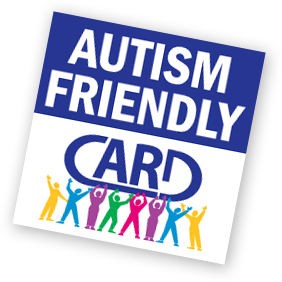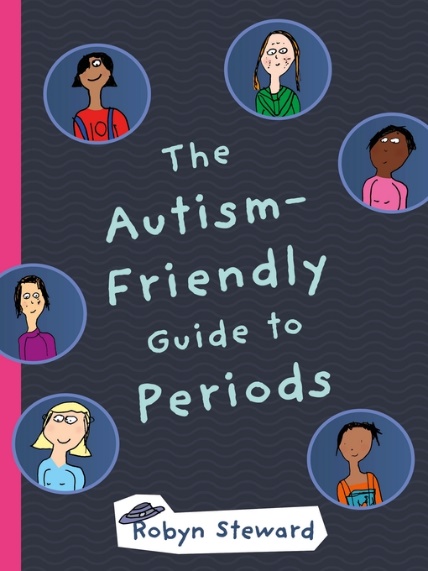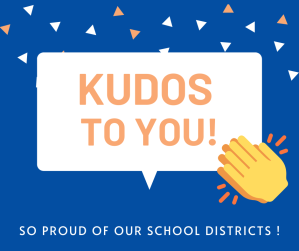INTRODUCTION
Before I met Haley Moss, I’d already done some research and knew that she was a writer, artist, advocate, and the first openly autistic female lawyer in Florida. However, it wasn’t until I witnessed her two presentations that I got a full appreciation for how accomplished and gifted this woman is. Haley visited our Learning Academy class where she spoke to students in the transition program. Following her conversation with the class, Haley presented to CARD constituents as well as USF students and faculty.
LIFE
Haley Moss was born in Boca Raton, Florida.
As a child, one of Haley’s favorite hobbies back then was to solve jigsaw puzzles. At school, Haley struggled with making friends and kept to herself a lot. She didn’t like going to lunch with the other students because she didn’t know where to sit and how to interact.
Though she was diagnosed with autism at the age of three, Haley revealed in her presentation that it wasn’t until she was nine years old that she was informed about her autism. Her parents sat her down and told her that she had magical powers, just like Harry Potter. As an avid Harry Potter fan, she hoped that meant an owl would be delivering an acceptance letter from Hogwarts and she’ll learn how to become a witch in two years when she became eleven. To her great disappointment (and most of us when we turned 11), the letter did not come.
At the age of eighteen, while Haley attended the University of Florida, she tried being part of a support group, but didn’t feel comfortable there and discontinued it after joining only one session. The reason why Haley didn’t seek out support while in college is because she would feel uncomfortable or as if she failed if she asked for additional support.
In 2018, Haley graduated from law school. On January 11th, 2019, Haley was admitted as a licensed attorney, making her the first openly autistic person to become an attorney in the state of Florida. Before this accomplishment, Haley Moss was already known for her efforts and talents by the University of Miami, the CEC, Project Lifesaver, and the Dan Marino Foundation. Now because of her achievement, she’s now recognized by the American Bar Association, South Florida Business & Wealth, Diversability D-30 Impact List, LiFT Florida, and the nonprofit organization Ms. JD just to name a few. Currently, Haley is working to ensure that people with disabilities aren’t facing any sort of discrimination at their workplace through consulting with businesses.
Haley is also an accomplished author and has written four books so far: The Young Autistic Adult’s Independence Handbook, Great Minds Think Differently: Neurodiversity for Lawyers and Other Professionals, A Freshman Survival Guide for College Students with Autism Spectrum Disorders, and Middle School: The Stuff Nobody Tells You About.
PERSPECTIVES
When she was thirteen, Haley had no intention of being a spokesperson for people with autism.
She once thought because she was labeled as “high functioning” compared to other people with disabilities, that meant she was not like them. Honestly, I myself can strongly relate to this. I held that same sort of belief as well for a large portion of my lifetime.
But she doesn’t believe in that anymore. Haley now strongly believes she’s no more deserving than anyone other than herself. We all need help sometimes. Using functioning labels can be harmful because people may not get the best suited kind of help or be seen as not needing help in a certain area entirely.
During her second lecture, Haley said that just because you’re set apart from others and you’re not in the same position as the rest of your peers, doesn’t make you a failure. You’re just taking a different path that leads to the same destination as most other people are headed, but your own path is carved differently. According to Haley, development generally follows a linear path, but in autism that’s not the case. She says just because she processes information differently from other people, doesn’t make her or other people stupid. Each person’s brain is unique and no two are ever the same.
Haley believes that one barrier for autistic people is ableism. Ableism is the stereotypes, prejudice, and discrimination against people with disabilities. Ableism can be both internal or external, conscious or not. A prime example of ableism is when someone views disabled people as inferior or weak and vulnerable. If serious enough, ableism can also be a very hostile discrimination and includes harmful behaviors such as bullying, abuse, or violence.
Haley revealed when she’s asked what’s it like having autism, she says that she’s just trying to reach the same destination as they are, like getting a good education. It really frustrates her when having autism is made into such a big deal and being looked down upon.
Another topic Haley covered was masking. Masking is taking on a persona that is felt to be more neurotypical. When she was younger, Haley would want to be socially included and make friends, and one way to do that was learning about what’s popular to everyone else. When she was in high school. that topic was the Twilight saga, even though she much preferred other fiction like Pokémon. But Haley was afraid that others might make fun of her or exclude her if they knew that. Haley says that masking prevents people from being authentic and can ultimately be very exhausting. It would be ideal for environments to be welcoming and accepting so that people don’t feel they must mask who they truly are.
MY TAKEAWAYS
As someone who wants to write stories and books, I personally asked her how she managed to write and publish several books already. I wanted to write and publish something ever since I was fourteen, I’m now twenty-four and still haven’t published or even written anything yet. Her answer was that it was overwhelming for her to write those books, but she managed by setting aside an hour just to write. And if you haven’t started writing your own stuff yet, that’s okay. You have plenty of time!
Different people have given me that advice in the past, but on this occasion, hearing it come from someone who’s an experienced author and has written multiple books gave me more relief this time because thanks to her experiences in writing, her words carried more weight to them.
It was a pleasure to have met Haley Moss and to witness her two presentations. I was very impressed by Haley and all the achievements she accomplished so far in her life. I got more clarity on how a person with autism can live a life of success regardless of the hardship they faced at first in life. And as someone who has autism as well, this gave me a little more hope that despite my own mental barriers I can achieve my lifelong hopes and dreams!






